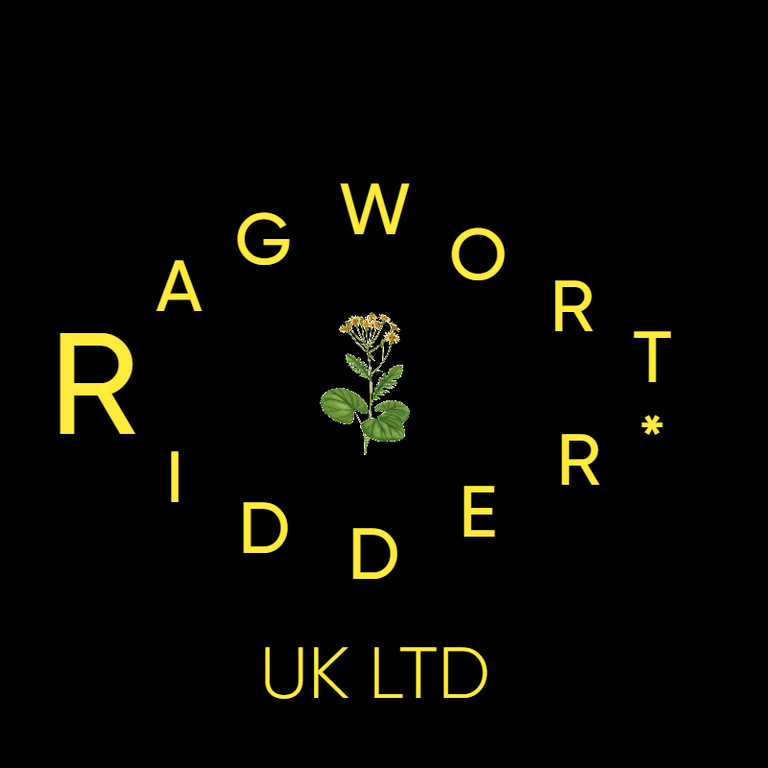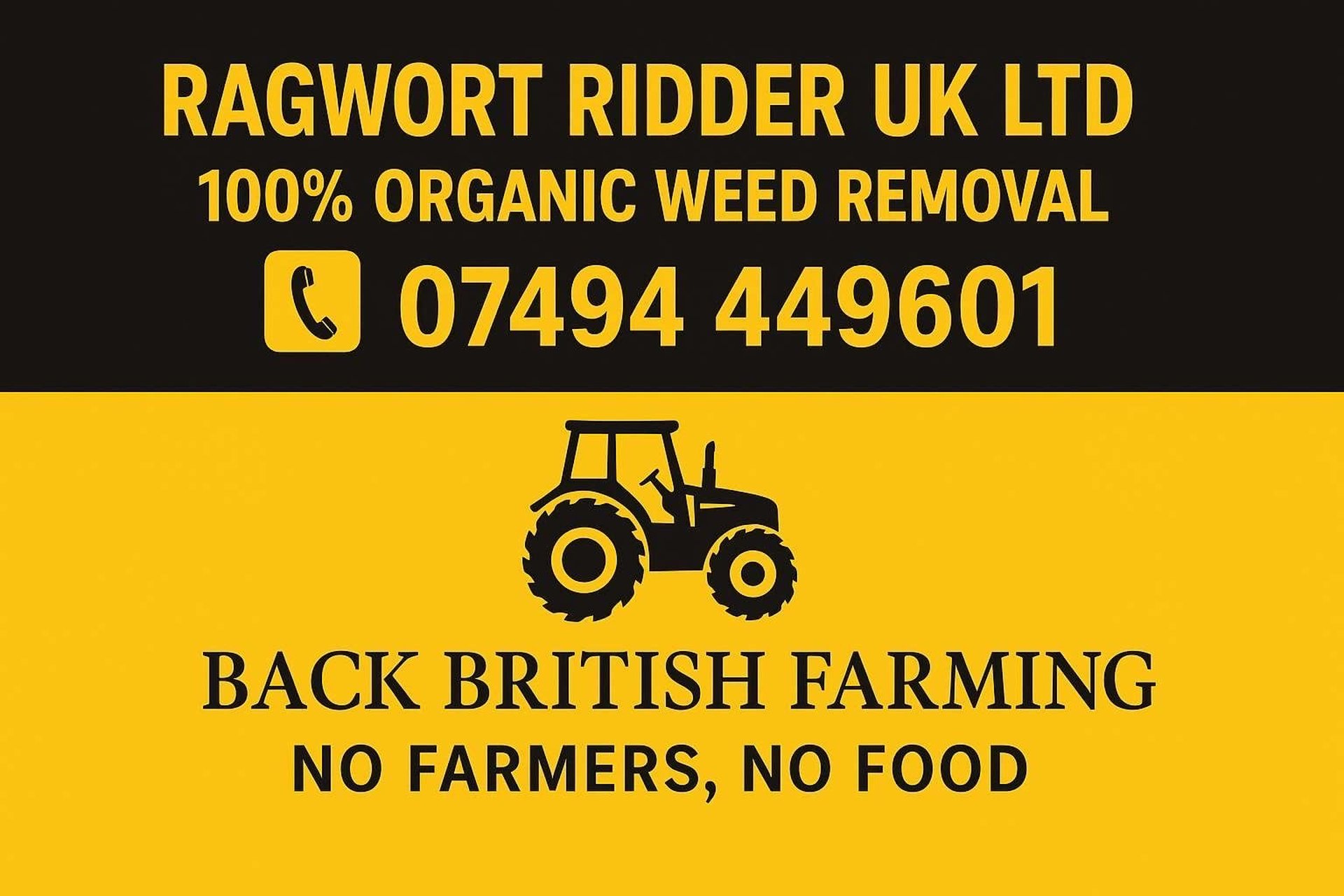Our Services
Expert ragwort removal and pasture clearance for safe, healthy farmland.


We specialise in the safe removal and disposal of ragwort and other invasive weeds that threaten the health of your land and animals. Whether it’s paddocks, pastures, or arable fields, our goal is simple — to clear your ground of harmful plants quickly, effectively, and with long-lasting results. Every job is carried out with care, ensuring that weeds are not only removed but also disposed of responsibly to prevent regrowth and protect your land for the future.
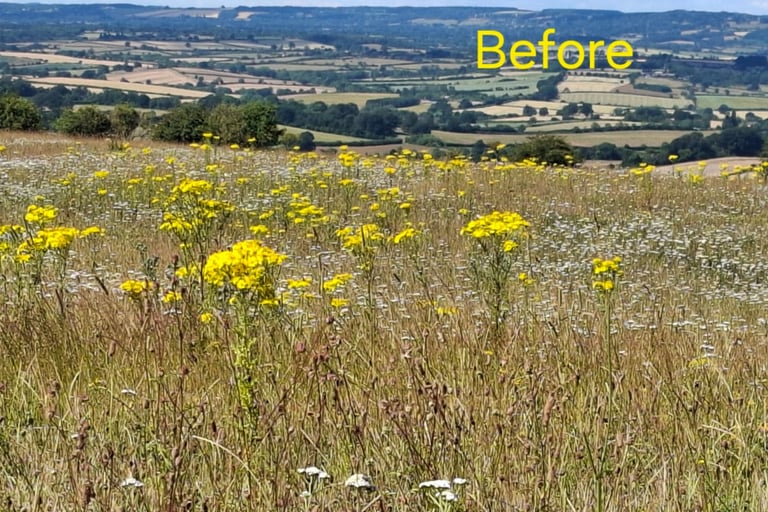

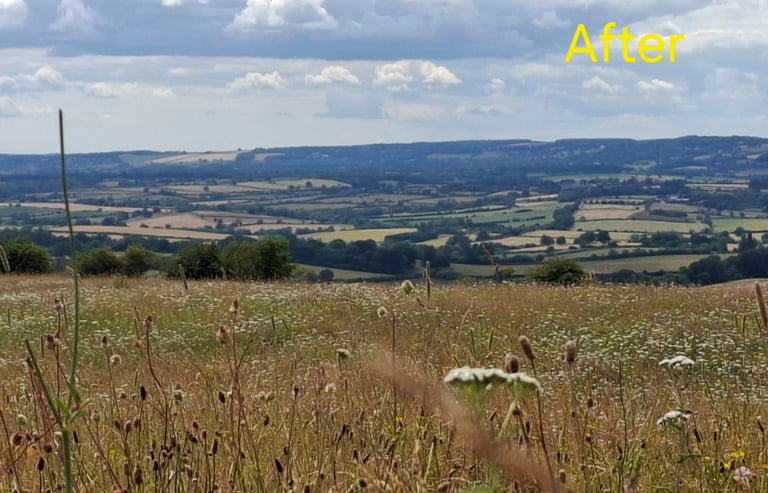

Specialist Ragwort Removal
At Ragwortridder, we offer rapid and efficient ragwort removal services designed to keep your outdoor spaces safe, compliant, and visually appealing. Ragwort can be both unsightly and harmful, especially in hospitality environments with gardens, terraces, or outdoor seating areas. Our skilled team uses proven techniques and professional-grade equipment to identify, extract, and dispose of ragwort swiftly and thoroughly. We pride ourselves on delivering this service with exceptional speed and attention to detail, minimizing disruption while ensuring your grounds are maintained to the highest standard.

Ragwort
Ragwort is an injurious weed that is governed by the Weeds Act of 1959 and also the Ragwort Control Act of 2003.
It is poisonous to all livestock, but horses are more susceptible to ragwort poisoning due to their longer lifespan.
Seeds can lie dormant in the land for up to 18 years.
Plants can produce up to 180,000 seeds.
Has 19 slightly differing varieties which grow in all parts of the UK & Europe.
Listed below are the weeds we offer a removal and disposal for:




due to increased grazing and burning of hillside vegetation, bracken is on the increase and sometimes considered an invasive weed.
It can quickly spread, creating dense stands which outcompete other species.
A plant can spread by seed but also via stems, which take root when the tip of the stem reaches the ground, producing new aerial shoots.
It can be invasive, and mature stands are difficult to eradicate.
Dock
Deep-rooted weeds that compete with grasses, reducing pasture quality.
Their large leaves smother grass growth and lower the nutritional value of fields.


Can sting and irritate skin, making it unpleasant for people and animals to come into contact with.
Grows in dense patches, spreading quickly and outcompeting healthy pasture plants.
Sharp, spiny plants that livestock refuse to eat, meaning grazing land goes to waste.
Seeds spread easily on the wind, quickly infesting large areas of land.
Black Grass


A major problem for arable farmers, as it reduces crop yields by competing with wheat, barley, and other cereals.
Known for its resistance to many herbicides, making it difficult to control without specialist removal.


Giant Hogweed
Extremely dangerous plant; its sap causes severe burns, blistering, and permanent skin damage if touched.
Spreads aggressively along waterways, roadsides, and open land, making it a hazard for both people and animals.


Giant Horsetail
Deep-rooted plant that is extremely difficult to remove; can regenerate even from tiny fragments of root.
Toxic to horses and livestock if eaten, and can rapidly spread across grazing land.
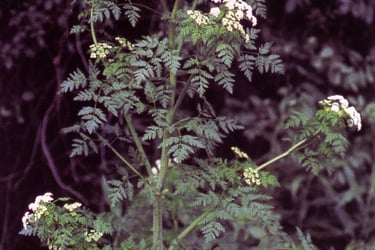

Hemlock
One of the most poisonous plants in the UK; ingestion is often fatal to animals and humans.
Spreads quickly on disturbed soil and riverbanks, posing a high risk in fields and paddocks.


Tree Surgery
Overgrown, damaged, or dangerous trees can block light, damage fencing, or pose safety risks to horses and livestock.
We provide safe tree cutting and removal services to maintain healthy land and keep paddocks safe.
Bracken
Nettles






Bracken
Brambles
Dock
Thistles
Thistles
How do we dispose of the weeds?
Non-Disposal
In some cases, plants can be left on-site to naturally break down once made safe. This method is only used when there’s no risk to livestock, people, or surrounding land.
Burning
Controlled burning is used for highly toxic or invasive weeds, ensuring all harmful parts of the plant (such as seeds, roots, or sap) are completely destroyed and cannot regrow.
Composting
Where suitable, plant waste is composted in a safe and managed way. This allows organic matter to break down naturally, returning nutrients to the soil while keeping your land free of harmful weeds.
